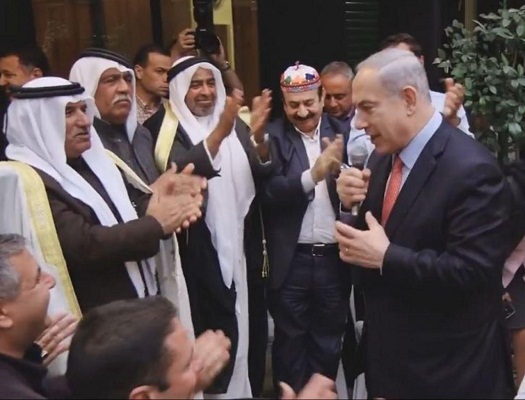The Arabic-language Rai al-Youm daily has, in an article, discussed policies adopted by the US and Saudi Arabia on Iran and their efforts to depict a negative picture of the Islamic Republic. The highlights of the article as published by the Persian-language Entekhab news website follow.
A decade on since the US invasion of Iraq, we are hearing the same drums of war today and we are seeing that this time, global media are seeking to portray Iran as “absolute evil.” The only thing which has changed compared to those times is that Arabs have established a close relationship with Israel and they try to form an alliance to counter Iran.
The Israelis’ slogan “A good Arab is a dead one” seems to have materialized now because Tel Aviv terms some Arab leaders as “good!”
These Arab governments are ignoring one point, and that is, whether or not they have differences with the Islamic Republic, Iran is a country with 2500 years of history which has rendered many services to Arabs. No matter how serious Arabs’ divisions with Iran are, they should adopt a responsible position vis-à-vis history, and not allow themselves to be mentioned in history as Washington’s pawns to launch a nuclear war against a Muslim country.
But what will happen after a possible US offensive, and what measures have been adopted to tackle that?
Should such an attack take place, Iranians will utilize all means available to them to counter the Americans. The Islamic Revolution Guards Corps (IRGC) troops have learned guerrilla war tactics at their bases inside Iran. This is while the rough terrain and hardly negotiable rocky ground in most parts of Iran would impede the progress of the enemy’s ground forces.
Some American analysts estimate the US will suffer tens of thousands of casualties and trillions of dollars in losses should it launch a war against Iran. It is right that a major part of the financial cost will be covered by the United Arab Emirates and Saudi Arabia. However, that would not stop Washington from suffering losses in other domains.
After the attack is launched, Iran would open up its fronts beyond the country’s borders. In that case, the IRGC’s arms present outside the region would be able to deal painful blows to the interests of the US and its allies in the Persian Gulf and Europe. IRGC-affiliated forces in Saudi Arabia and the United Arab Emirates can use “Qadir” submarines to launch an operation with a very high destruction power deep inside the Arabian Peninsula, and put in place sea mines to destroy Saudi naval forces.
Iran’s gunboats are another tool which can deal heavy blows to aggressors in the Strait of Hormuz. Iran’s arsenal of missiles some of which have ranges up to 2000 kilometres can raze towers in Saudi Arabia and the United Arab Emirates, namely the skyscrapers in Dubai, to the ground. Moreover, with the Strait of Hormuz getting blocked, crude prices could rise up to $500 per barrel.
Nevertheless, Israel would find itself within the range of Hezbollah’s missiles, which will rain down on Zionists should war break out. So, first a war will erupt on a smaller scale to weaken Hezbollah and the Popular Mobilization Units. Then a conflict would break out between Shiites and Sunnis, and the situation will become tough for Houthis.
Let’s be frank. The US wants a war at any price and seeks to make it happen. The US does not care what human and financial costs it would suffer if such a war breaks out. The small conflicts going on in the Middle East nowadays are but a prelude to an all-out war.
